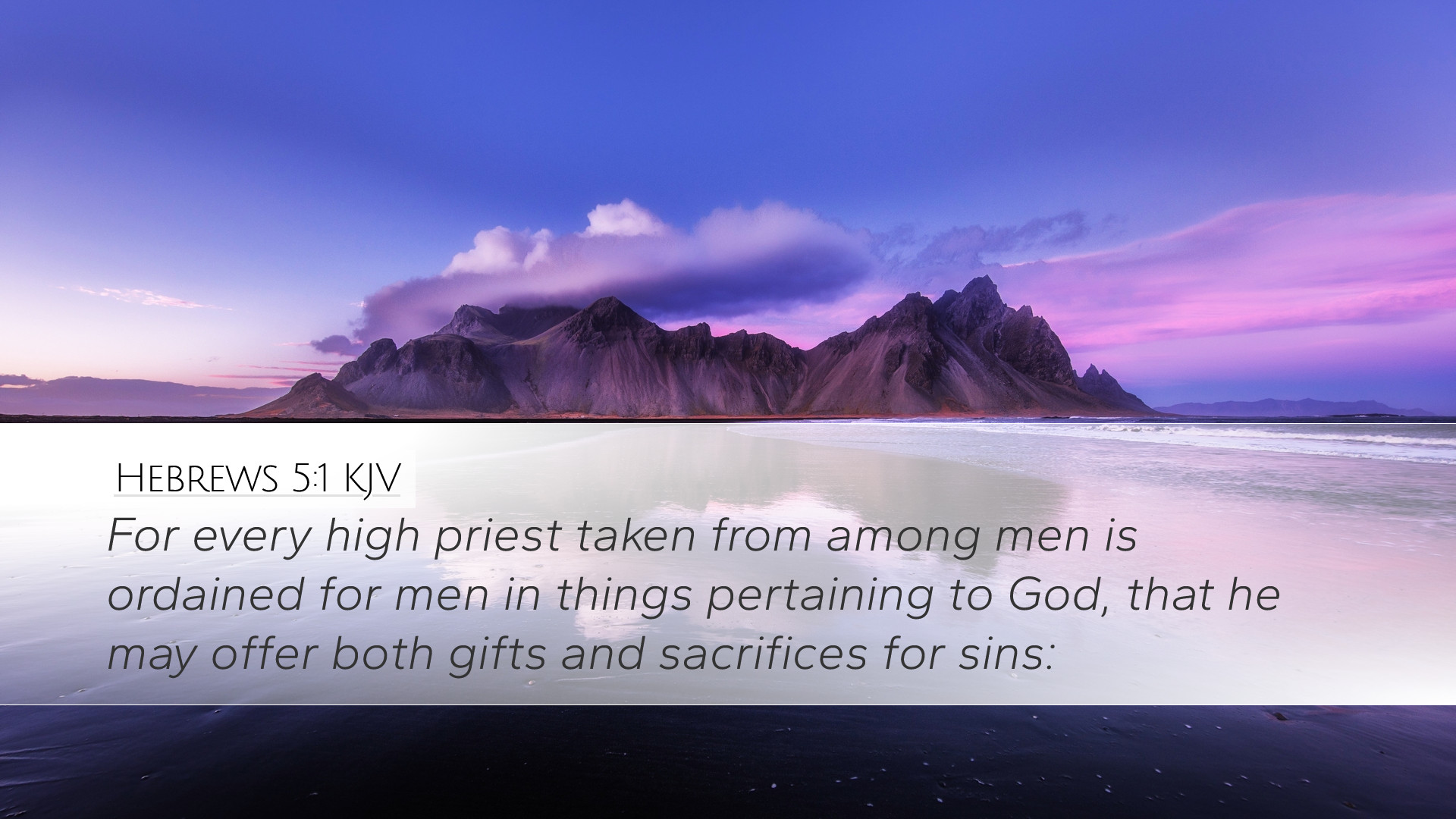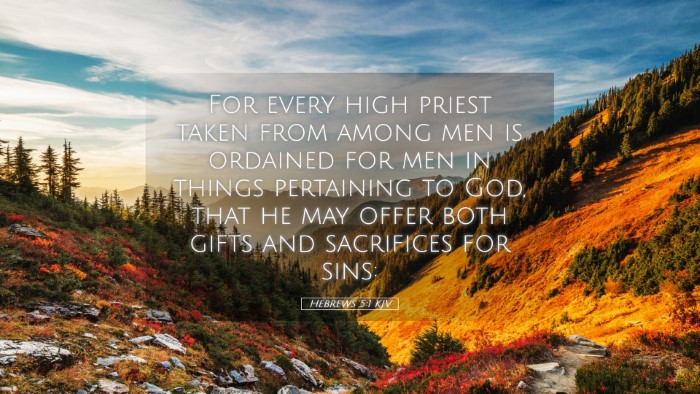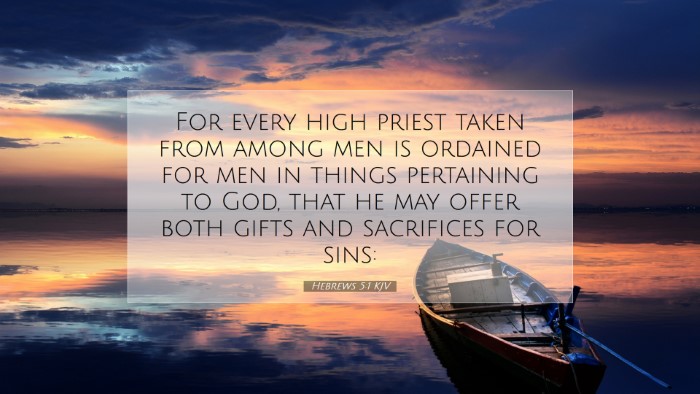Old Testament
Genesis Exodus Leviticus Numbers Deuteronomy Joshua Judges Ruth 1 Samuel 2 Samuel 1 Kings 2 Kings 1 Chronicles 2 Chronicles Ezra Nehemiah Esther Job Psalms Proverbs Ecclesiastes Song of Solomon Isaiah Jeremiah Lamentations Ezekiel Daniel Hosea Joel Amos Obadiah Jonah Micah Nahum Habakkuk Zephaniah Haggai Zechariah MalachiHebrews 5:1
Hebrews 5:1 KJV
For every high priest taken from among men is ordained for men in things pertaining to God, that he may offer both gifts and sacrifices for sins:
Hebrews 5:1 Bible Commentary
Commentary on Hebrews 5:1
Hebrews 5:1 states:
"For every high priest taken from among men is appointed for men in things pertaining to God, that he may offer both gifts and sacrifices for sins." (NKJV)
Introduction
The book of Hebrews provides a profound exploration of the superiority of Christ as our High Priest. In Hebrews 5:1, the author lays a foundational understanding of the role and selection of the high priest under the old covenant, setting the stage for the emphasis on the unique and divine priesthood of Jesus Christ.
Historical Context
To appreciate this verse, it is crucial to understand the historical and cultural context of the Jewish priesthood:
- Jewish Tradition: Under the Mosaic Law, the high priest held a pivotal role as the mediator between God and the people, which included offering sacrifices for sin.
- Divine Appointment: The high priest was chosen from among the Levites, indicating that he would be relatable and recognize the sinfulness of humanity.
Commentary Insights
Matthew Henry
Matthew Henry emphasizes that the role of the high priest is not merely ceremonial but serves a vital purpose in representing humanity before God. He notes that:
- The high priest is appointed to be a mediator, illustrating God's desire for a relationship with His people.
- Offering gifts and sacrifices symbolizes acknowledgment of sin and the need for atonement, which leads to reconciliation with God.
Albert Barnes
Albert Barnes provides a detailed interpretation focusing on the qualifications expected of a high priest. He points out that:
- The high priest must come from among men, reflecting the truth that he understands human frailty and is capable of compassionate intercession.
- This role involves ongoing obligations to offer sacrifices not just for himself but for the people, underscoring the need for a shared human experience in the process of redemption.
Adam Clarke
Adam Clarke elaborates on the significance of sacrifice in the priestly ministry. He remarks that:
- Gifts and sacrifices point forward to the ultimate sacrifice of Christ, who alone can fully deal with the problem of sin.
- The passage illustrates the very essence of what it means to be a priest: an offering made on behalf of others, conveying the heart of God’s plan for salvation.
Theological Implications
The theological implications of Hebrews 5:1 create a rich tapestry of truth that relates profoundly to both Christian doctrine and practical living:
- The Mediatorial Role of Christ: This verse serves as a prelude to understanding the superior priesthood of Christ. Unlike earthly priests, Jesus is the perfect mediator who fulfills every requirement laid out in the Law.
- Empathy and Compassion: The humanity of the high priest is crucial as it allows him to empathize with the weaknesses of the people, mirroring the empathic compassion found in Christ.
- Ongoing Sacrificial Ministry: While Christ's sacrifice on the cross was once for all, the sermon here suggests a continuing advocacy in heaven, where He intercedes for believers.
Practical Applications
This verse not only carries essential theological truths but also offers practical applications for pastors, students, and believers:
- Engagement in Intercession: As Christ intercedes, believers are called to be priests in their own right, actively praying for others.
- Understanding Our Limitations: Recognizing the role of the high priest helps us to be aware of our limitations and our need for Christ's grace in our lives.
- Celebrating the Atonement: Believers are encouraged to celebrate and reflect on the grace of God that allows us to come boldly before the throne of grace, assured of our forgiveness.
Conclusion
Hebrews 5:1 establishes the fundamental role of the high priest within the context of God’s redemptive plan. By drawing from historical, theological, and practical perspectives, we gain a deeper appreciation of Christ’s ultimate sacrifice and His ongoing role as our High Priest. As we ponder this verse, may we be inspired to live out our calling as a royal priesthood, reflecting God's glory through our service and intercession.


